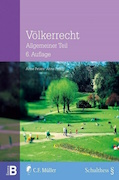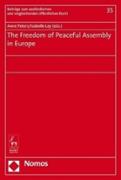Sie befinden sich hier: Forschung Forschung nach Rechtsgebieten Völkerrecht International Law in Times of Transition
Die Entwicklung des Völkerrechts spiegelt die vielfach widersprüchlichen politischen und ökonomischen Phänomene der Gegenwart: Wir beobachten das weitgehende Scheitern westlicher Einflussnahmen in Osteuropa (Kosovo und Ukraine) sowie in der arabischen Welt (Afghanistan, Irak und Libyen), islamistische Fundamentalismen, das Scheitern pro-demokratischer Proteste und Revolten des arabischen Frühlings, den internationalisierten Bürgerkrieg in Syrien, Flüchtlingsbewegungen, die Instabilität vieler Staaten in Afrika, regionale und globale Finanzkrisen sowie den ökonomischen und politischen Aufstieg nichtwestlicher Staaten. Scheinbar paradox geht die fortschreitende Globalisierung der Märkte einher mit der Wiederbetonung der klassischen „westfälischen“ Souveränität im Sinne von Autonomie und Nichteinmischung zulasten des Aspekts der Verantwortung. Die Deformalisierung, d.h. der Verzicht auf Völkerrechtsverträge zugunsten informeller Arrangements, hält ungebrochen an. Dies erlaubt zwar schnelle und flexible Regulierung, könnte aber die normative Kraft des Völkerrechts unterminieren.
Die Ausgangshypothese vieler Einzelprojekte zum allgemeinen Völkerrecht ist, dass angesichts der fortschreitenden Interdependenz und der Verschärfung von Problemen globaler Natur (Terrorismus, Klima, Nutzung des Cyberspace, Massenbewegungen von Menschen und nicht zuletzt Pandemien) die kontinuierliche Verbesserung der Effektivität und Legitimität des Völkerrechts ein rechtspolitisches Anliegen ist, zu der die Grundlagenforschung beitragen kann.

Das Völkerrecht ist eine dynamische Rechtsmaterie, die sich in den vergangenen Jahrzehnten stark ausdifferenziert hat und gegenwärtig auf widersprüchliche politische und ökonomische Trends reagiert. Das Buch gibt einen Überblick über die historische Entwicklung sowie über die Strukturen und Funktionsmechanismen des Völkerrechts. Das Augenmerk richtet sich auf die zentralen Themen. Zu diesen gehören die Rechtssubjekte, die Rechtsquellen, die internationalen Organisationen, das universelle Gewaltverbot, die Friedenssicherung durch die UN, die völkerrechtliche Verantwortung und Sanktionen sowie die Streitbeilegung.
The paper discusses five charges which are raised against international legal scholarship: (1) the charge of epistemic nationalism (that much or all international legal scholarship is (maybe inevitably) determined by the national background of the researcher and therefore suffers from a national bias); (2) the charge that much of international legal scholarship is value-loaded and therefore ideological, ‘moralising’, ‘too’ idealist and utopian (the charge of ideology); (3) the charge that much scholarship is too close and too much influenced by legal practice, and thus too ‘unscholarly’; (4) the charge that much of the research activities are too detached from practice (the charge of social and political irrelevance; (5) the reproach that much of (notably European) international legal scholarship is limits itself to purely internal arguments about legal constructs, interpretation according to the traditional canons, concentrating on legal terms, seeking to systematize and harmonize legal provisions, and commenting on judicial decisions (the charge of doctrinalism).
The paper concludes that these charges can be successfully met by a pluralist international legal scholarship, needed in the novel period of international law we are living though, a period which is characterised by a high tension between interdependence and globalisation (economic, technical, and cultural) on the one hand, and stark cleavages and fencing (ideational, economic, territorial) among states, on the other hand.
This chapter seeks to give an overview of the state of the art of legal thought about international organizations as legal entities in a legal environment. International organizations are legal communities in a threefold sense: They are created by law, they use law as a means of governance, and they should be governed by the rule of law. Accordingly, international law constitutes, enables, and constrains international organizations. I will show that (with some simplification) legal scholarship until the 1990s was primarily concerned with the constituting and enabling function of the law (thus securing the effectiveness of international organizations), while the more recent legal concern is the constraining function of the law (thus improving the accountability of international organizations). In the procedural law of organizations, a triad of accountability procedures has been built: transparency, participation, and access to information.

This volume presents an accessible overview over the current state of the legislation on the freedom of assembly in eleven selected member states of the Venice Commission: the UK, France, the US, Belgium, Germany, Turkey, the Russian Federation, the Ukraine, Poland, Hungary and Tunisia. The volume may serve as a work of reference for the researcher or practitioner who seeks specific information on the legal bases, restrictions, or implementation of the freedom of assembly in a specific country or on more recent themes such as the legal implications of flashmobs. It is also a helpful starting point for anyone interested in comparing the state of assembly legislation in Europe and beyond. Next to information on details of the domestic regulation of assemblies, each study contains information on recent events, changes and debates on the laws on assemblies. Examples are the handling of the Arab spring in Tunisia, freedom of assembly-implications and management of the Gezi Park protests in Turkey, or the constitutional upheavals in the Ukraine.

Les événements survenus dans les pays arabes depuis 2011 soulèvent une fois de plus la question du rapport dialectique entre le droit et les mouvements sociaux. Les mouvements ont emprunté les voies légales, celles des partis politiques, ou des associations de la société civile, et se sont également traduits par des mouvements de rue.
Ces mouvements ont questionné aussi le système juridique international. L´ambigüité dans les positions prises au niveau international, notamment « au nom de la communauté internationale », et les différentes interprétations adoptées (le cas libyen) posent la question du rôle de l`ONU dans la gestion des conflits internes et le respect des principes fondamentaux du droit international.
L´ouvrage examine des « avancées » et des « reculs » effectués par les divers mouvements sociaux, l´hétérogénéité des priorités avancées, et l´impact géopolitique des mutations, surtout dans les rapports des pays arabes avec leurs voisions.
International law feeds on preconditions which it cannot guarantee itself. International scholarship, too, must come to grips with pre-conditions and existing parameters over which it has no control itself. But such scholarship must not ‘succumb’ to these factual and ideational realities by adapting its methods and findings to any given political, social, and economic climate. It is the job of international legal scholars to produce ideas in a spirit of realist utopianism (John Rawls). Depending on the existing parameters, these ideas are apt to shape attitudes and actions, or not. Such scholarship also needs to distance itself from its object of study in order not to lose its capacity to criticise the law and the practice. How far exactly scholarly writing should transcend or keep aloof from the prevailing political climate and from concerns of feasibility depends on the research questions under discussion and is a matter of judgment.
The style of scholarship suggested here is illustrated by the work of three eminent scholars whose careers continued through different political eras more or less favourable to the international rule of law: Hersch Lauterpacht, Antonio Cassese, and Josef Kunz.